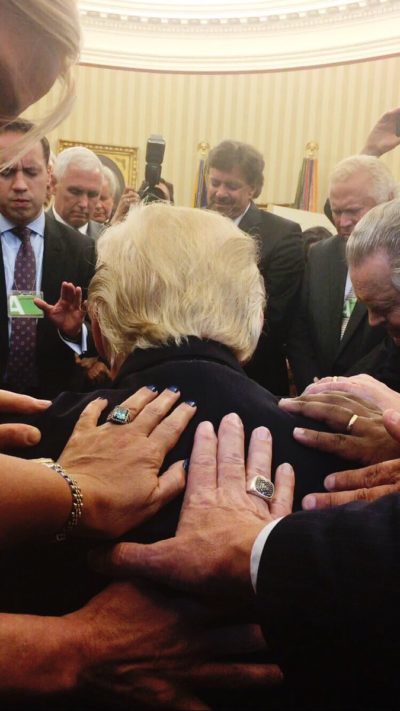This is a question Trump supporter and Senator from SC Lindsey Graham sought to address in his defense of Trump today. Here is a series of tweets from Frank Thorp, NBC news reporter with Graham’s thoughts.
GRAHAM: “I really do believe that if you’re a Somali refugee who likes Trump, he’s not going to say ‘go back to Somalia.’ A racist says go back to Somalia because you’re a Somalian or you’re a Muslim or whatever, that’s just the way he is. More narcissism than anything else.”
— Frank Thorp V (@frankthorp) July 17, 2019
I really do believe that if you’re a Somali refugee who likes Trump, he’s not going to say ‘go back to Somalia.’ A racist says go back to Somalia because you’re a Somalian or you’re a Muslim or whatever, that’s just the way he is. More narcissism than anything else.
The main line of defense is that Trump likes who likes him even if that person is a person of color. According to Graham, race alone does not determine the disliking. Trump says nasty things about people who insult him even if they are white. Witness his treatment of Paul Ryan. It is true that he cuts down anybody who points out the president’s flaws. Furthermore, he has surrounded himself with minorities who gush his praise. It is less than clear what he says about them behind closed doors but he has not avoided his minority supporters.
As I thought about this, it occurred to me that a check on this would be to assess the types of insults he makes against various disliked people. I haven’t checked this, but I don’t think he has ever told Bernie Sanders or Nancy Pelosi to go back to their countries of origin.
The Nature of Prejudice
The work of Gordon Allport on prejudice seems relevant. Allport wrote in 1954 that humans find it very easy to fall into prejudices but very difficult to abandon them. A foundation for prejudice according to Allport is personal values. For Trump there appears to be no higher value than loyalty to himself. Allport wrote:
…negative prejudice is a reflex of one’s own system of values. We prize our own mode of existence and correspondingly underprize (or actively attack) what seems to us to
threaten it The thought has been expressed by Sigmund Freud, “In the undisguised antipathies and aversion which people feel towards strangers with whom they have to do, we recognize the expression of self-love, of narcissism.”The process is especially clear in time of war. When an enemy threatens all or nearly all of our positive values we stiffen our resistance and exaggerate the merits of our cause. We feel — and this is an instance of overgeneralization — that we are wholly right. (If we did not believe this we could not marshall all our energies for our defense.) And if we are wholly right then the enemy must be wholly wrong. Since he is wholly wrong, we should not hesitate to exterminate him. (p. 26)
Allport also argued prejudices are maintained by placing exceptions to the negative prejudgment into subcategories. Allport described the process this way:
There is a common mental device that permits people to hold to prejudgments even in the face of much contradictory evidence. It is the device of admitting exceptions. “There are nice Negroes but . . ” or “Some of my best friends are Jews but. . . .” This is a disarming device. By excluding a few favored cases, the negative rubric is kept intact for all other cases. In short, contrary evidence is not admitted and allowed to modify the generalization; rather it is perfunctorily acknowledged but excluded. (p. 23)
So in response to Lindsey Graham, it certainly is possible that President Trump is motivated by both negative racial stereotypes and narcissism. I am not making a diagnosis but I am saying that the work of Allport demonstrates that one may maintain negative prejudice while claiming one does not have negative judgments by using an exception as proof — as Graham did for Trump. What may move minorities (or a member of any other group Mr. Trump doesn’t like) into the good or — more cynically — useful category is that they praise him. He appears to dislike many whites but doesn’t appear to have a group prejudice toward them. What is at issue is the evidence that keeps coming up that he may have prejudices toward certain minorities as a group which can be overcome principally by obsequious praise for him.


